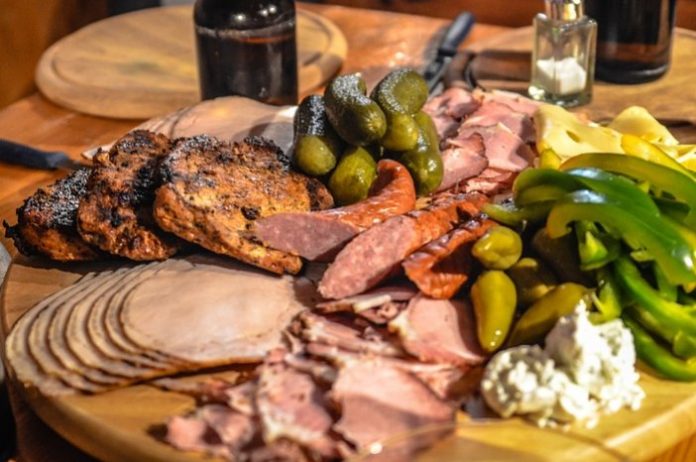Today, we are going to talk about nutrition in relation to strength training, and we’ll focus on the core component of muscle building – protein. Let’s go on.
The diet issues are always very individual, but I will stick to the basic principles that should work in general for everyone.
So, if one has a training plan ready (of course it’s an individual issue as well), we can go ahead. Regarding protein, it is generally known that for men lifting weights the recommended intake is 1.5-2g per kg of body weight.
Now let’s go through the individual protein sources. Fish is a great source of protein, especially because of its easy digestibility. Perhaps ideal for women. Fish are also often included in various calorie restricition dieting plans (which I personally do not recommend, only in certain circumstances).
Meat and fish
I recommend fish at least 2-3 times a week because of a well digestible protein. It also contains a lot of omega-3-6-12, having a lot of positive effects on our body. There’s no problem with canned fish, such as tuna in its own juice (suitable for using in some salad for example). However, if there is a source of fresh fish available, I would certainly prefer that.
Next we have chicken and turkey, both used as the main source of proteins, as they are the most accessible ones, regarding both price and availability in stores. It is a very pure protein, so I recommend especially when you want to lose weight a bit – there’s minimum amount of fat.
As far as beef is concerned, quality beef has, in my opinion, the highest quality protein of all. At the same time, it is most difficult to digest and also contains the most fat of all kinds of meat (not counting pork). In any case, if you want to gain some solid muscle mass, I can only recommend it.
Let’s also look at the views on the harmfulness of consuming meat. As a general rule, there should be no exaggeration of anything. This is also the case of consuming excess meat if your body cannot digest it. Excess meat can also cause various diseases (I mean at extreme amounts), often uric acid is forming, joint problems arise etc. Therefore, of course, I recommend eating a fair amount of vegetables for fiber to cleanse the intestines.
Dairy, eggs, tofu
Another source of protein is tofu. I am not a big fan of this food, but as I have already mentioned, in normal quantities it’s OK. On the other hand, it contains many vitamins and it is also suitable for celiacs and people with lactose intolerance.
Eggs should certainly not be missing in the diet because it’s a very good protein source. The yolk contains the high-quality fats we also need, as well as a large amount of protein, so you don’t even have to worry about yolks.
Also, dairy products such as curd, yoghurt and cheese are a good source of protein. However, care should be taken, since especially cheeses contain a relatively large amount of fat. So there is no need to overdo it with cheese and, indeed, it depends on the type of cheese.
Milk itself is also a good source of protein and an even better source of calcium. The problem is that quality milk can be rarely found. Therefore, I do not recommend it very much. Most of the milk contains a huge amount of preservatives today to help it to be fit for consumption as long as possible. Some milks hav e shelf life as long as two months, so you can imagine what it contains. I only put it in coffee 😉
The daily regimen
Protein should be eaten regularly throughout the day. I would recommend three meals a day, adding some curd or protein shake between meals, depending on the financial situation. You should not exaggerate it with curd, but one curd a day is all right. Of course, it also depends on the protein intake in total throughout the day.
If you have such option, I personally recommend that you cook and prepare your own food, as you always know what’s in the diet. If you go somewhere with colleagues for lunch, you can usually choose something (not always) but, most importantly, you never know what they put there. It’s really about how serious you mean it.
A very common question is related to vegetarians. I know a lot of them. Personally, I am not much of a supporter of this type of diet because I think we can never replace animal proteins with the plant ones so well. But again, when someone does not train, or maybe very recreationally, it can work. However I can’t imagine it very well while gaining muscle.





















